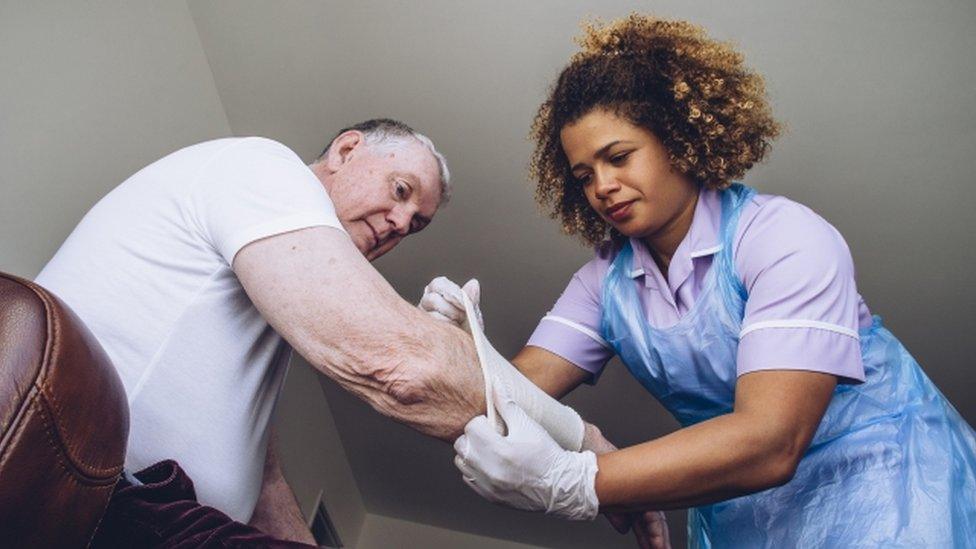Boris Johnson's new tax plans criticised by NI political parties
- Published
- comments

Northern Ireland's political parties have criticised the prime minister's plans to introduce a new health and social care tax across the UK.
They argued the move was "inequitable" and "regressive".
The tax would, however, mean an extra £400m for Northern Ireland to spend by 2024/25.
Stormont is already set to receive an extra £180m of funding this year as a result of increased health spending announced for England.
The NHS in England is getting an extra £5.4bn to respond to Covid-19 and tackle waiting lists.
Public spending rules mean Northern Ireland gets a population-based share of extra spending in England.
Separately, however, Boris Johnson announced on Tuesday that a new health and social care tax will be introduced across the UK to pay for reforms to the care sector.
The tax will begin as a 1.25 percentage point rise in National Insurance (NI) from April 2022, paid by both employers and workers, and will then become a separate tax on earned income from 2023.
It will raise £36bn across the UK for frontline services in the next three years and be the "biggest catch-up programme in the NHS' history", according to the prime minister.
The problem with the prime minister's plan is that "it is the worst form of taxation", according to the Democratic Unionist Party's (DUP) Sammy Wilson.
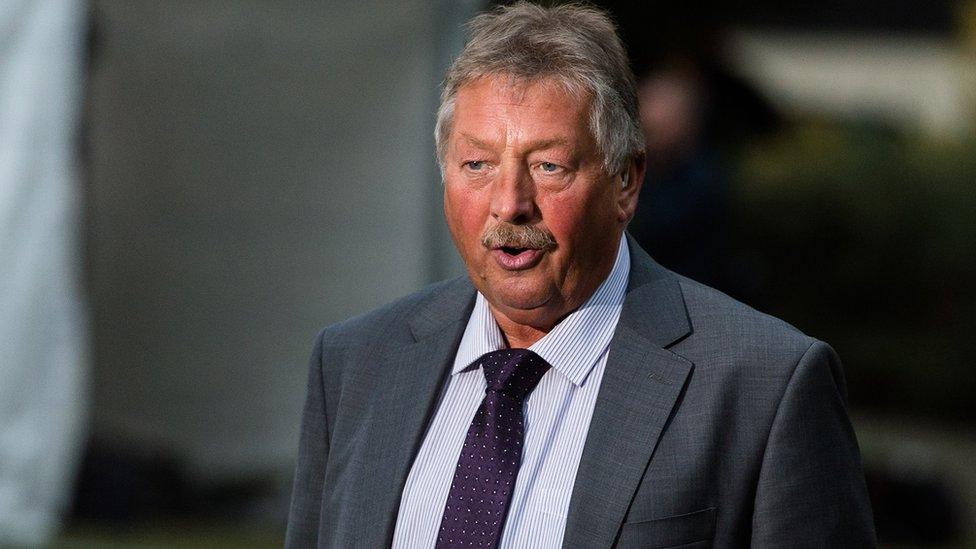
DUP MP Sammy Wilson has been criticised for describing the health minister as 'a poodle'
"It takes a flat-rate from everyone but the benefit of the tax will be felt mostly by the better off and those with the most assets," said the East Antrim MP.
"Rather than being progressive as the prime minister has described, it is an extremely regressive tax."
Young people 'disproportionately hurt'
"It also imposes additional labour costs on employers at a time when we are trying to promote economic recovery," said Mr Wilson.
"Lastly, it will hit the youngest harder than those who will achieve the immediate benefits," he added.
SDLP leader Colum Eastwood also stated that the tax move will "disproportionately hurt young people".
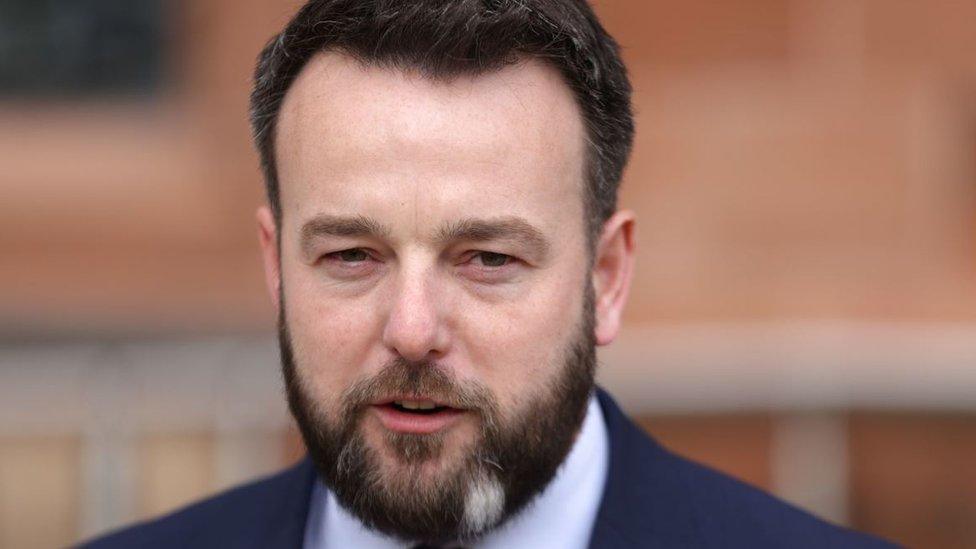
Colum Eastwood described the tax as "deeply inequitable"
"[The tax] is not only a further assault on devolution, it represents yet another attempt to stack the scales against young people and those least able to bear additional pressure on their finances," said the Foyle MP.
"The net result of this huge policy shift is that young tenants, unable to get on the property ladder, will subsidise the social care of well-off landlords."
"It is deeply inequitable," added Mr Eastwood.


Any increased spending on public services in England automatically leads to an increase in budgets for the devolved administrations.
So the government says the prime minister's big plans for health and social care will see Stormont getting an extra £400m a year by 2024.
That's on top of an extra £180m this financial year, flowing from extra money for the NHS in England to tackle waiting lists.
That initial tranche of £180m is due to be allocated in October.
The money doesn't have to be spent on health but it will obviously have first call.
Northern Ireland had the longest waiting lists of any part of the UK even before the pandemic.
At a budget briefing in April a senior health official told MLAs the service needed an extra £400m next year just to standstill.

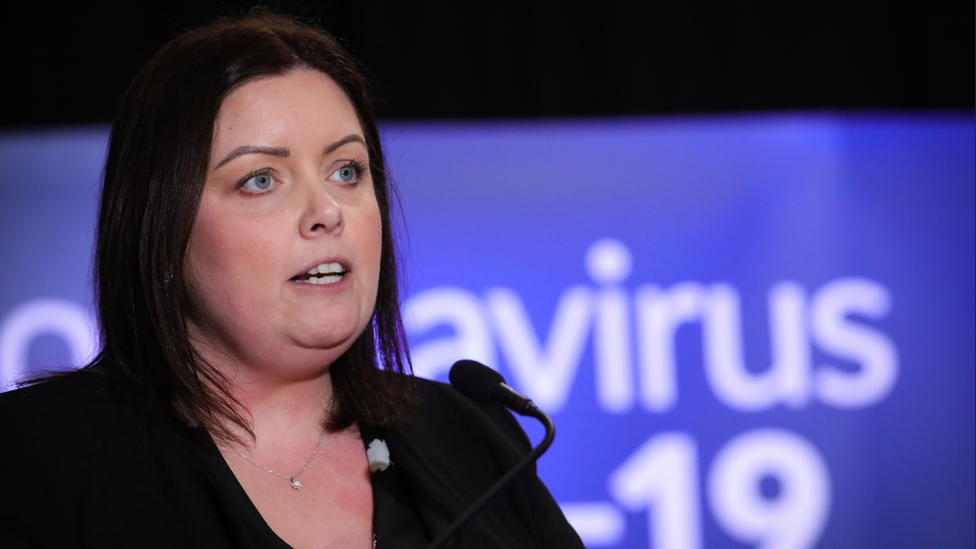
Deirdre Hargey said it was "unfair that workers and families should pick up the cost"
Sinn Féin's Deirdre Hargey said Boris Johnson's "latest broken promise" was forcing "ordinary workers and families" to pay the price of the pandemic.
"We can all agree that increased investment is needed in our recovery, particularly in health and social care but big business and billionaires have made fortunes from the pandemic, and it is unfair that workers and families should pick up the cost," said the South Belfast MLA.
"Clearly, it would be much better for the people here if the responsibility for such matters was transferred back to the island of Ireland," Ms Hargey added.
Alliance Party deputy-leader Stephen Farry said Mr Johnson's plans "merely raise taxes on youngest and lowest paid and hinder job creation".
"Social care should be accessible to all. It is also essential, skilled work that deserves to be well paid and secure," the North Down MP tweeted.
"Johnson's plans achieve none of that."

Allow X content?
This article contains content provided by X. We ask for your permission before anything is loaded, as they may be using cookies and other technologies. You may want to read X’s cookie policy, external and privacy policy, external before accepting. To view this content choose ‘accept and continue’.

Also commenting on the tax plans, the Nevin Economic Research Institute (Neri), a leading research group, said it was "clear" that increasing employee contributions in Northern Ireland will hit lower-income households hardest.
"The burden of policy announcements will fall on households predominantly that rely solely on work for their household income," said Neri Senior Economist Dr Lisa Wilson.
"Other forms of income, such as capital gains tax continue to receive much more generous treatment in our tax system, and this cannot be justified any longer."
Regarding the £180m, Ulster Unionist Party MLA Alan Chambers called for it to be "ring-fenced and earmarked" for the local health service.
"Whenever Stormont receives the funding it should be prioritised and solely invested in our local health service," said Mr Chambers, the party's health spokesperson.
"If the funding is intended entirely for the NHS in England, then the Northern Ireland share should be intended entirely for the health and social care system here."
Related topics
- Published7 September 2021
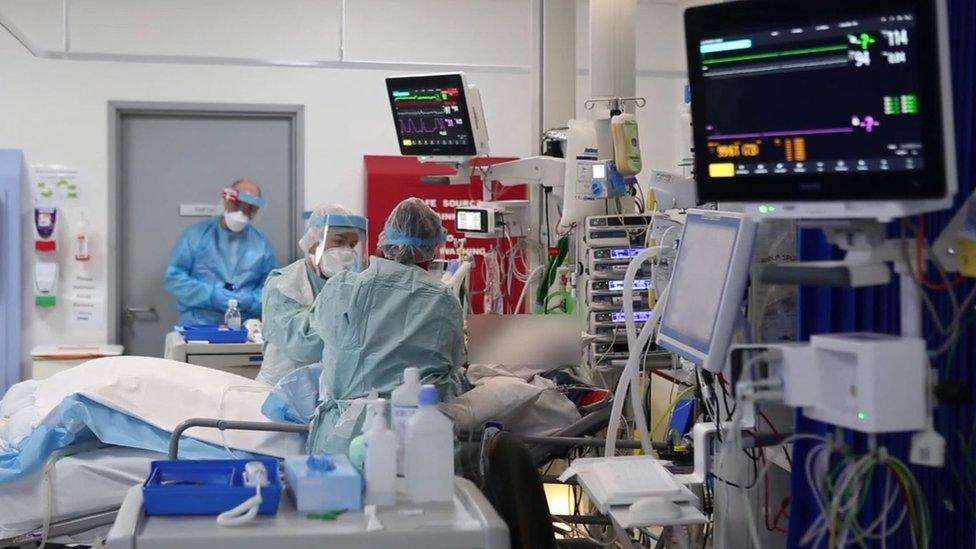
- Published26 August 2021

- Published7 September 2021
